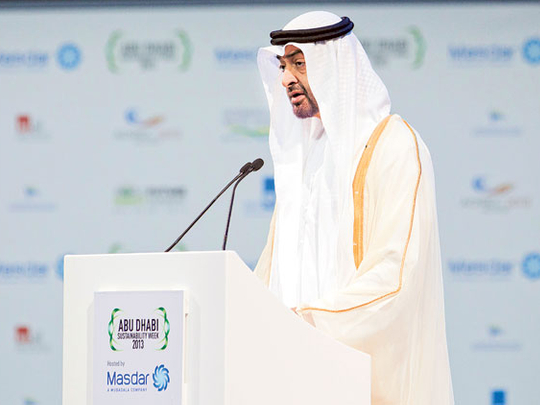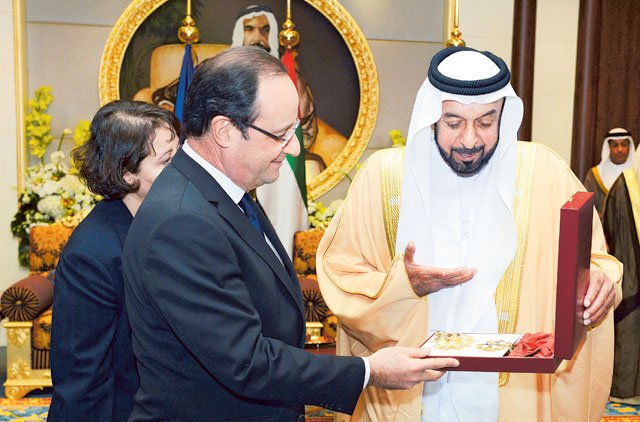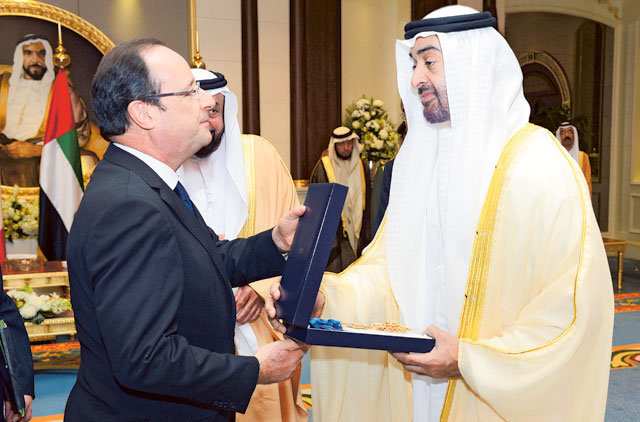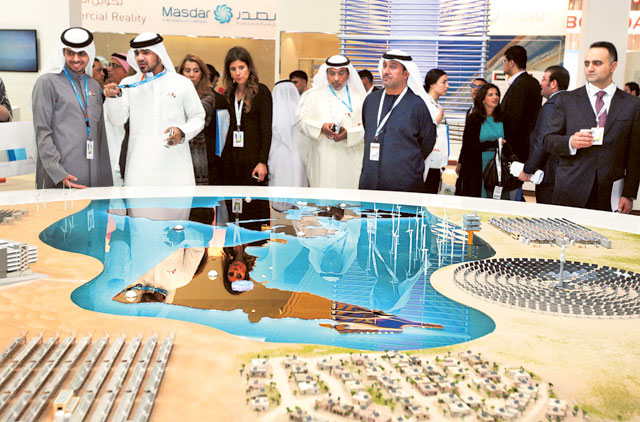
Abu Dhabi: The world faces many challenges in the water, energy and food sectors which require concerted efforts to tackle them at international levels, General Shaikh Mohammad Bin Zayed Al Nahyan, Crown Prince of Abu Dhabi and Deputy Supreme Commander of the UAE Armed Forces, said on Tuesday at the opening of the World Future Energy Summit (WFES) at Abu Dhabi National Exhibition Centre (Adnec).
“We are at a critical stage and this requires collective efforts to meet the challenges facing energy and water resources,” said Shaikh Mohammad Bin Zayed.
He added that there is dire need to meet up with the challenges of water, energy and food security and to handle climate change.
“The vision of [President His Highness] Shaikh Khalifa [Bin Zayed Al Nahyan] and the late Shaikh Zayed had prompted us to seek sustainable energy. The UAE has been providing the world with energy since half a century and we are working with the international community to secure the resources of energy and achieve sustainability to ensure safe living conditions for the generations to come,” remarked Shaikh Mohammad Bin Zayed.
He added that Abu Dhabi had become landmark for strategic partnerships for renewables and for sustainable development.
“We call on the international community to cooperate to reach the aspired goals as the future depends on what we decide today,” said Shaikh Mohammad Bin Zayed.
French President Francois Hollande said France has made strategic moves by investing in renewable energy to lower the costs of electricity and to boost its national economy.
He warned that the world is heading towards an environmental catastrophe unless leaders kick off a serious work on renewable energy and other eco-friendly initiatives. “The world will be facing a catastrophe very soon unless urgent measures are taken on the environment,” said Hollande.
He stressed that there is a dire need for further investments in renewable energy and efforts for energy efficiency in older cities. “We are expecting prices of hydrocarbons to increase in the future due to increase in demand which will also uptrend the carbon emissions worldwide as it will be more than 4 per cent within few years. We have a firm commitment to sustainable development and reducing greenhouse gas emission. This has driven us to provide more than one million houses with renewable energy to reduce the cost and decrease emissions,” said Hollande.
He added that this had driven his country to host the climate conference in 2015, expressing his country’s willingness to cooperate with all the countries.
Hollande said it is estimated that $300 billion (Dh1.1 trillion) of investments in sustainable renewable energy are needed this year but the requirement comes during the times of economic crises.
He called for all countries to contribute and proposed establishing joint funds between oil producing and consuming countries for the purpose. “France wants to make the transition in energy resources a national, European and global cause,” Hollande said.
The Abu Dhabi-based International Renewable Energy Agency (Irena) on Monday launched a new global roadmap to consolidate efforts to double clean energy by 2030 but warned the process must be accelerated substantially to achieve the target. The target aims to raise the share of clean renewable energy sources such as solar, wind and biomass to around 30 per cent of global energy mix from around 16 per cent currently.
The French president commended the UAE for its role in keeping abreast with sustainable energy, He said is “ a chance to identify means which global community can resort to in order to cooperate and work together to carve a pathway for sustainability and the deployment of clean energy.
Sultan Al Jaber, CEO of Masdar, said in his opening speech that the world should consider the global sustainability challenges, co-relations between economic progresses, energy security, water scarcity and climate change. “No longer can we address water — without considering the energy needed — to withdraw, treat and transport it. And no longer can we address energy — without considering the water needed —to extract, generate and produce it,” he said.















